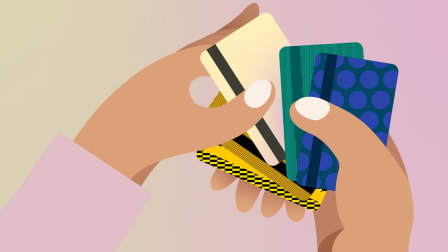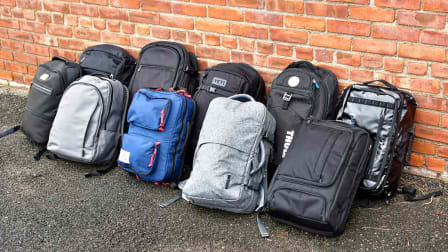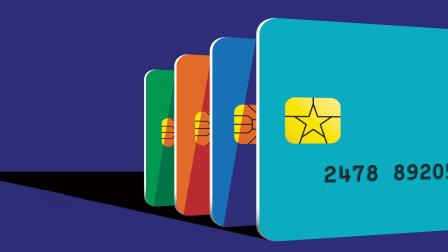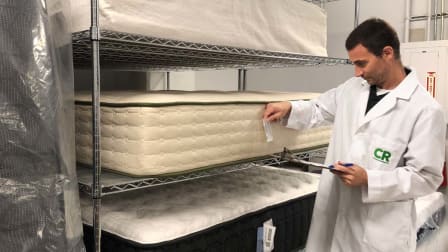Your COVID-19 Travel Toolkit
How to protect yourself and others, whether you’re taking a plane, a train, a bus, or an automobile
Travel can broaden our horizons, enrich our lives, and, especially during the holidays, reunite us with loved ones. According to the Centers for Disease Control and Prevention, travel also increases our likelihood of getting—and spreading—COVID-19.
While some Americans feel ready to take to the skies, rails, and roadways this season, the risk may be too high for others, including older people, smokers, and those with certain preexisting conditions, says Ravina Kullar, PharmD, an infectious disease specialist and spokesperson for the Infectious Diseases Society of America. Those not at high risk should consider the possible threat they pose to the people they’re visiting, Kullar says.
In general, all travelers need to practice basic safety strategies, such as wearing a mask, maintaining physical distance, sanitizing frequently touched surfaces, and cleaning their hands often and well. (That means washing them with soap and water for a minimum of 20 seconds or using hand sanitizer with at least 60 percent alcohol.) Here, experts help you assess—and reduce—the risk of common modes of travel.
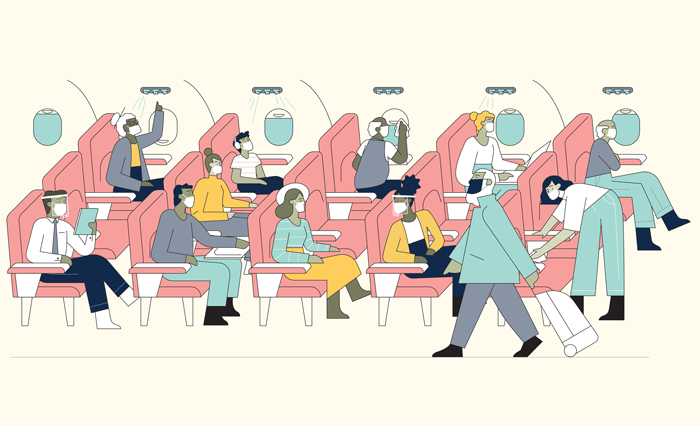
Air Travel
Airplanes may seem like the perfect environment for spreading germs. But because most jets are equipped with powerful HEPA air filtration systems and cabin air is replaced with fresh air every few minutes, experts say they’re probably safer than many other enclosed environments.
Even so, before booking a ticket, ask what the airline is doing to reduce passenger risk and encourage safety measures, such as mask wearing and physical distancing. Delta, for example, says it will block middle seats through at least Jan. 6; Southwest will do the same through at least Oct. 31.
Trains
Traveling by train presents risks including being in close proximity to many others, but Amtrak has taken measures to reduce the likelihood of coronavirus transmission. Crew and passengers must wear masks, trains are carrying fewer people, and café cars offer carryout only. “I would say Amtrak’s setup is about the best you could do,” Glatt says.
Passengers can also put belongings on seats next to them to prevent anyone from sitting there. “This way, we’re encouraging more physical distancing,” says Jason Abrams, an Amtrak spokesperson, adding that the climate control system replaces the air in train cars every 5 minutes.
At stations and on the train, use touchless options for payments and opening doors. The CDC advises avoiding high-touch surfaces, such as those in restrooms, along with ticket machines, touch screens, turnstiles, and handrails, and cleaning your hands promptly if you can’t. Try to leave a row of seats between yourself and others. Glatt suggests disinfecting the arms of your seat, the tray table, and anything else you might touch. Clean your hands after disembarking.
For longer trips, consider a roomette, which is a private compartment with a door, individual climate control, and seats that convert into beds. “Having your own room on the train is ideal,” Glatt says.
Buses
Like planes and trains, buses bring people close together for extended periods. “The level of risk will depend largely on the length of time spent on the bus, how crowded it is, how the air is filtered, and whether or not everyone is wearing a mask,” Glatt says.
Ask what safety protocols the bus company you’re considering has in place. Greyhound, for instance, requires passengers to wear masks and says it will deny travel to anyone who doesn’t comply. The company also says that the HVAC systems on its buses continuously refresh the air and that buses are sanitized before and after each trip with CDC-recommended disinfectants. But Greyhound doesn’t limit the number of passengers, so you could find yourself elbow-to-elbow with a stranger.
Experts recommend the same safety protocols you’d use on a train. “Be extra careful in the bathroom,” Glatt says. “Keep your mask on, wipe down surfaces before touching them, and wash your hands thoroughly or use hand sanitizer after you leave.” A face shield may offer additional protection.
Rental Cars, Taxis, and More
“If you’re renting a car and traveling alone or just with your family, I don’t think there’s really much to be concerned about,” Glatt says, adding that many rental companies are now deep-cleaning vehicles between customers. If you want to be extra-cautious, swab the steering wheel, shifter and knobs, doorframe and handles, seat-belt buckles, and other high-touch surfaces with a disinfectant wipe or cleaning solution with at least 60 percent alcohol.
Experts also recommend washing your hands before driving, and opening the windows to air out the vehicle. To avoid lines and contact with rental agents, consider programs such as Hertz Gold and Avis Preferred, which allow you to go straight to a waiting vehicle.
When refilling the gas tank, wear latex or nitrile gloves or use a paper towel to grip the pump handle and press the keys. Clean your hands afterward. At rest stops, wear a mask, clean your hands after touching any surface, and eat in your car or outside, away from other travelers.
The best ways to minimize risks in taxis and other for-hire vehicles is to make sure that you, other passengers, and the driver wear masks, and that the climate control system is set to draw in fresh air and the windows are open at least partly. The latter may help to rapidly dissipate the tiny particles (which can carry viruses) created when we cough or speak. “We found that opening the rear windows very quickly reduced the level of aerosol in the car running at typical city speeds,” says Jack Caravanos, DrPH, a professor of environmental public health sciences at New York University’s School of Global Public Health, who recently researched aerosol levels in several car models.
Lyft and Uber currently require drivers and passengers to wear masks and encourage drivers to keep cars clean. Still, it’s wise to sanitize your hands after touching objects like seat-belt buckles, door handles, and window buttons, and after you get out. You should also handle your own bags and sit in the back seat, says Caravanos, whose research found that plastic barriers between the front and back seats may further cut risk. “If you’re really concerned,” he says, “the right rear seat, furthest from the driver, might be the best place to sit.”
Cruises
Currently, the CDC recommends that U.S. travelers defer cruise travel because of the risk of COVID-19 transmission on ships. The State Department also advises that Americans avoid cruises in case outbreaks leave them quarantined in other countries.
While some overseas cruises have resumed, traveling from U.S. ports has been voluntarily suspended through at least Oct. 31, according to the Cruise Lines International Association, an industry group. Some lines have halted sailings for even longer. “I don’t think it’s going to be safe to get on a cruise any time this year,” says Kullar, the infectious disease specialist.
Avoid Penalties When Travel Plans Change
In recent months travel companies have adopted a range of policies regarding refunds, cancellations, and changes, and some are more accommodating than others, says William J. McGee, CR’s aviation adviser. To protect yourself in case your plans change:
Know the rules. Hotels and car-rental agencies are usually fairly flexible if you cancel a reservation before their deadline. But the policies of companies such as Airbnb and Vrbo often vary from property to property, says John Breyault, vice president of public policy, telecommunications, and fraud at the National Consumers League.
Change your flight rather than canceling it. In general, airlines refund the cost of a ticket only if they cancel a flight. But American, Delta, United, and other airlines are now waiving change fees on domestic flights. So instead of canceling, change your ticket.
Avoid paying when you book. Car-rental companies and hotels may offer lower rates if you pay in advance. But right now, any modest break might not be worth the added risk.
Don’t rely on travel insurance. It might not cover a COVID-19-related cancellation, McGee says.
In recent months travel companies have adopted a range of policies regarding refunds, cancellations, and changes, and some are more accommodating than others, says William J. McGee, CR’s aviation adviser. To protect yourself in case your plans change:
Know the rules. Hotels and car-rental agencies are usually fairly flexible if you cancel a reservation before their deadline. But the policies of companies such as Airbnb and Vrbo a often vary from property to property, says John Breyault, vice president, public policy, telecommunications, and fraud at the National Consumers League.
Change your flight rather than canceling it. In general, airlines refund the cost of a ticket only if they cancel a flight. But American, Delta, United, and other airlines are now waiving change fees on domestic flights. So instead of canceling, change your ticket.
Avoid paying when you book. Car-rental companies and hotels may offer lower rates if you pay in advance. But right now, any modest break might not be worth the added risk.
Don’t rely on travel insurance. It might not cover a COVID-19-related cancellation, McGee says.
Editor’s Note: This article also appeared in the November 2020 issue of Consumer Reports magazine.

















